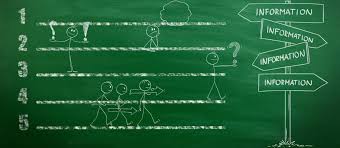
MP-SET Chemical Science Syllabus: Complete Guide
It helps find out the eligibility of applicants for Assistant Professorship in colleges and universities under the Madhya Pradesh region. For students applying to the Chemical Science subject, the syllabus is important as it works as a base for preparation. There is a comprehensive guide in this regard, further detailing the MP-SET Chemical Science syllabus for covering each subject effectively.
- General Outline of the MP-SET Chemical Science Syllabus
MP-SET Chemical Science syllabus covers all important topics of chemistry. Basic knowledge in certain areas of chemistry is checked through the syllabus. The syllabus encompasses basic principles as well as advanced concepts. A study of inorganic chemistry, organic chemistry, physical chemistry and analytical techniques is checked by organizing questions based on theory as well as application-based concepts.
- Inorganic Chemistry
The Inorganic Chemistry section involves the properties, structure, and bonding of elements and compounds. Important areas are:
- Periodic Table and Periodicity: Candidates must be familiar with periodic trends in atomic and ionic radio, ionization energy, and electronegativity.
- Chemical Bonding and Molecular Structure: This includes ionic bonds, covalent bonds, metallic bonds, and molecular orbital theory, in mind of how these determine molecular properties.
- The s- and p-block elements have to be known for properties and reactivity. Trends of group-wise elements and peculiar behavior of the elements.
- The D- and F-block elements form a good deal of inorganic chemistry. It includes coordination compounds, crystal field theory, and color.
- Organometallic Chemistry: Candidates need to know metal-carbon bonds, organometallic compounds, and their role in catalysis.
- Bioinorganic Chemistry: It is a study of metals in biological systems, including the role of hemoglobin and enzymes.
Extensive preparation in these areas will allow applicants to answer questions about the properties, reactions, and structural properties of elements and compounds with absolute confidence.
- Organic Chemistry
Organic Chemistry deals with the learning of carbon compounds and their respective reactions and mechanisms. Focus areas are given below:
- Basic Concepts and Structure: The students should learn bonding, hybridization, resonance, and aromaticity in organic molecules.
- Reaction Mechanisms: The more important mechanisms-nucleophilic substitution, electrophilic addition, elimination, and rearrangements -should be exhaustively treated.
- Stereochemistry: This section questions the concepts of chiral centers, isomerism, conformational analysis, and optical activity.
- Alkanes, Alkenes, and Alkynes: Their compounds and reactions are essentially a basic part of organic chemistry.
- Aromatic Compounds: The preparation, properties, and reactions of benzene and its derivatives must be studied.
- Functional Groups: Compounds consisting of functional groups such as alcohols, aldehydes, ketones, acids, amines, and ethers must be considered, along with their preparation and reactions.
- Named Reactions: These include Aldol Condensation, Grignard Reaction, Friedel-Crafts Alkylation, and many more. Students are expected to memorize these reactions and their mechanisms.
Students should be able to solve problems and mechanisms in organic chemistry so that they can apply their knowledge in the right way.
- Physical Chemistry
Physical Chemistry is the mathematical and theoretical treatment of chemical principles. The main topics include:
- Basic Laws of Thermodynamics: Basic Thermodynamics and thermochemistry.
- Chemical Kinetics: Reaction rates, order, molecularity, and activation energy. Some parts of this section constitute collision theory and transition state theory.
- Quantum Chemistry: Wave functions and their mathematical form, the Schrödinger equation, and quantum mechanical models of atoms.
- Molecular Spectroscopy: Candidates should have knowledge regarding various types of spectroscopies and the applications associated with them.
- Electrochemistry: Applications in Real Life Scenario related to this would include – electrochemical cells, the Nernst equation, conductivity and more.
- Surface Chemistry and Catalysis: Adsorption, catalysis, mechanism of reactions and their discussion on surfaces.
- Solutions and Colligative Properties: Boiling-point elevation, freezing-point depression and osmotic pressure, amongst others.
The derivations in mathematical exercises and calculations should be understood while practicing. Special emphasis in the preparation of the students should be placed on items that contain equations and formulas.
- Analytical Techniques
Analytical techniques explain the process of identification and determination of chemical substances.
- Routine techniques are Spectroscopy-UV-VISIBLE, IR, NMR, Mass are evaluated commonly. It encompasses underlying principles, instrumentations adopted, and spectrum analysis.
- Chromatography: Gas and High-performance liquid chromatography’s are to be discussed. Such separations in both of them would be covered and applications in it.
- Electroanalytical Techniques: It encompasses potentiometry, conductometry, and voltammetry to measure different chemical properties.
- Thermal Analysis: TGA and DSC are used to assess the thermal stability of compounds.
These techniques are highly applied in research and industrial work, and the candidates should be well aware of both the theoretical and practical aspects.
- Preparation Tips for MP-SET Chemical Science
To prepare for MP-SET Chemical Science, candidates should
- Review the entire syllabus: All areas of study must be covered including from inorganic chemistry to analytical techniques. Standard books available such as Atkins’ Physical Chemistry, Morrison and Boyd’s Organic Chemistry and Cotton & Wilkinson’s Inorganic Chemistry will help the student understand the concept perfectly.
- Solve previous papers: Solved question papers will help them to get knowledge regarding how many types of questions had been asked earlier and the weakness should get improved.
- Focus on Concepts and Applications: The applicants need to concentrate more on the concepts and the application of the real-life themes taken in the analytical and physical chemistry subjects.
Conclusion
The MP-SET Chemical Science syllabus encompasses all the basic areas of chemistry, both relevant to the academic world and to industries. At the heart of this syllabus lie the subjects of Inorganic, Organic, and Physical Chemistry; it is complemented by Applied Techniques, Analytical. To get a good rank, the candidates have to appear for all these parts with a sound understanding of the theory as well as the practical application. Regular practice, clarity of concepts, and strategic revision will boost preparation significantly and make achieving success in the MP-SET Chemical Science exam all the more feasible.



